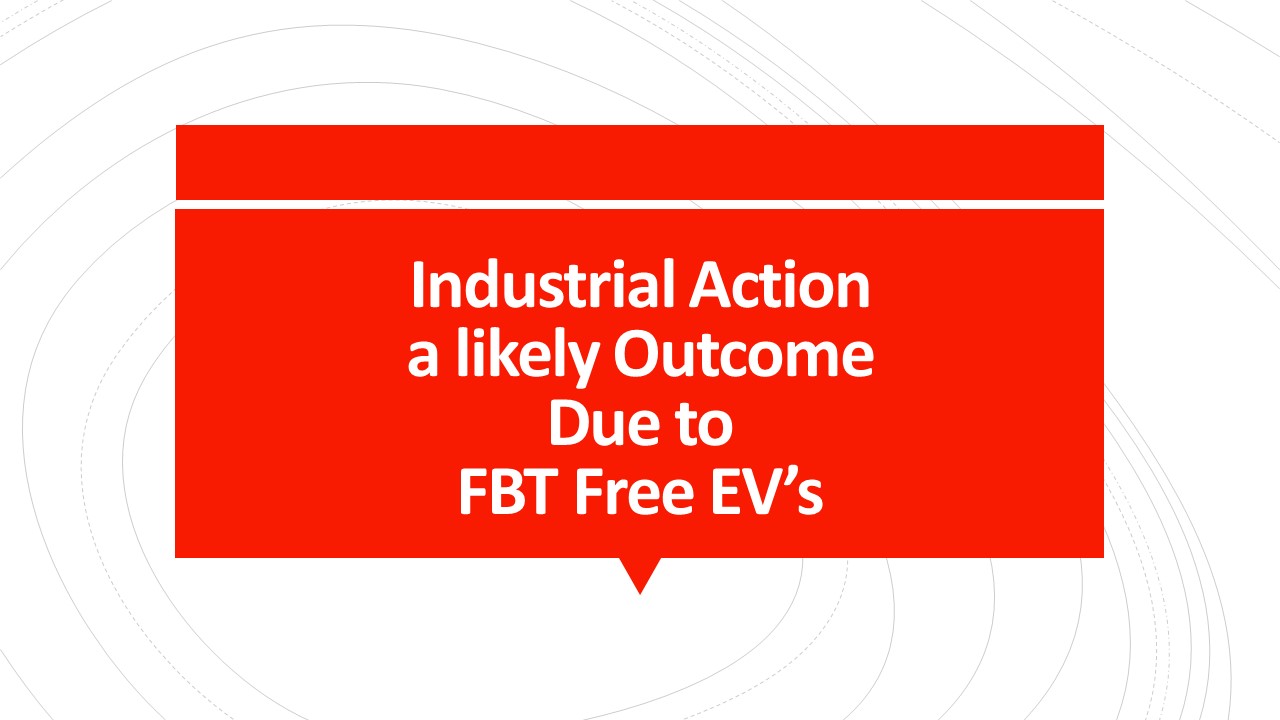On Friday 25th November the EV Discount Bill was passed providing an exemption from Fringe Benefits Tax (FBT) from 1st July 2022 for electric vehicles (BEV), hydrogen fuel cell vehicles (FCEV) and plug-in hybrid electric vehicles (PHEV) up to the 2022/2023 fuel efficient luxury car tax threshold of $84,916.
This Bill is the most significant policy change affecting a class of vehicle since the buy Australian policy that supported local vehicle manufacturing in Australia.
Whilst this will save organisations up to $16,000 per vehicle annually and accelerate their ability to decarbonise, their employees will have their reportable fringe benefits amount (RFBA) doubled (assuming the cost of an EV is double the cost of the internal combustion engine (ICE) or diesel engine vehicle it is replacing).
Implications
This means employees who have existing personal use rights and their organisation elects to change their existing ICE vehicle to a BEV or FCEV, their RFBA will likely double effecting their eligibility for certain government benefits and concessions. This includes but is not limited to: –
- Determining eligibility for family assistance payments, including
- Family Tax Benefit Part A and Part B
- Child Care Subsidy (from 2 July 2018)
- Child Care Benefit for approved care (prior to 2 July 2018)
- Parental Leave Pay
- Dad and Partner Pay
- Working out child support obligations
- Calculating liability for the Medicare levy surcharge
- Calculating child’s adjusted taxable income to determine whether they are considered a dependant for Medicare levy purposes
- Determining entitlement to the private health insurance rebate
- Determining if liable for Division 293 tax for superannuation contributions
- Determining eligibility for the government co-contribution for personal super co-contributions you made
- Working out the amount the driver must repay against their debt for
- Higher Education Loan Program (HELP)
- Vocational Education and Training Student Loan (VETSL)
- Student Financial Supplement Scheme (SFSS)
- Student Start-up Loan (SSL)
- ABSTUDY Student Start-up Loan (ABSTUDY SSL)
- Trade Support Loan (TSL)
As it stands, the EV Discount Bill will impact hundreds of thousands of normal workers who have personal usage rights under their employment contract.
It remains to be seen if organisations will or even can recompense employees for the impact caused by its decision to replace ICE or diesel vehicles with a BEV, FCEV.
As organisations accelerate the decarbonisation of their vehicle fleets, the impact on their employees will be huge and without resolution will likely lead to industrial action.
The AfMA Position
The Australasian Fleet Management Association (AfMA) believe the removal of FBT for organisations but not their drivers is unconscionable. AfMA highlighted this problem in its response to the Government’s National Electric Vehicle Strategy consultation paper and has communicated its concerns directly with the Treasurer, the honourable Jim Chalmers.
It’s hoped common sense will prevail, leading to urgent changes to the Electric Vehicle Discount Bill, thereby removing barriers to decarbonisation and preventing likely industrial action.


















